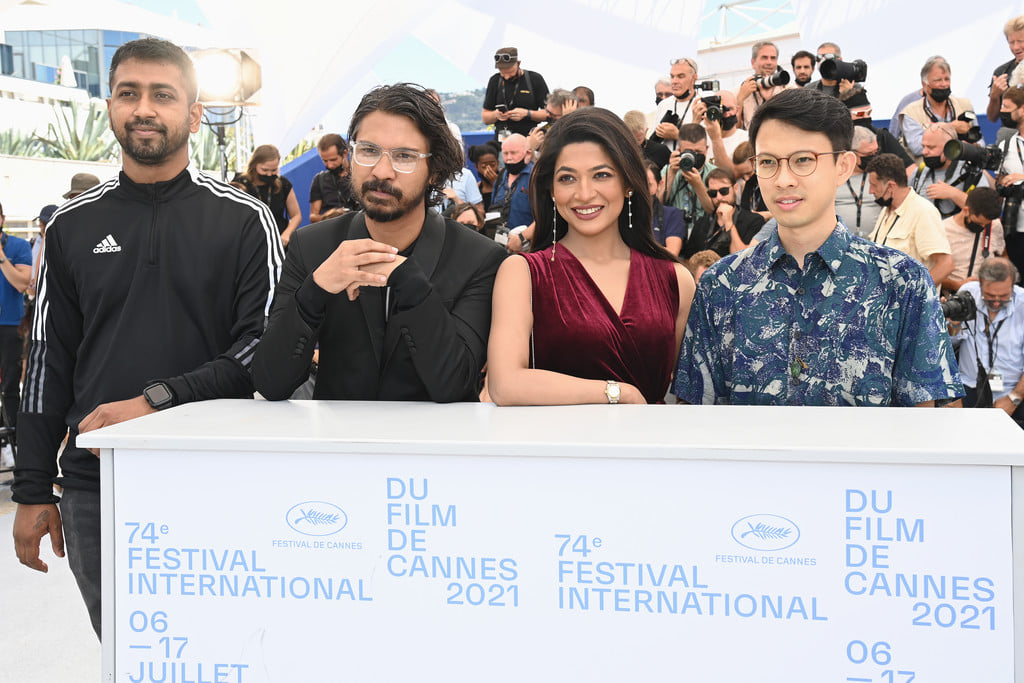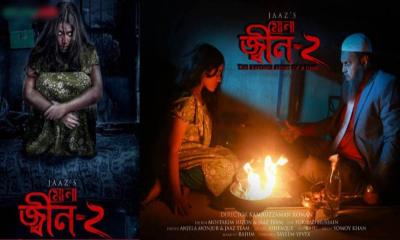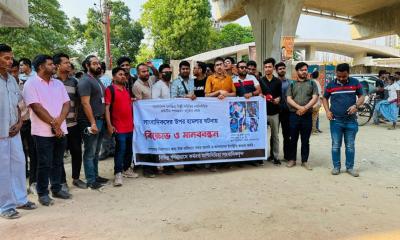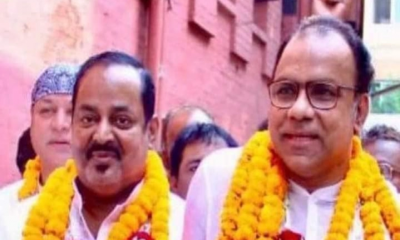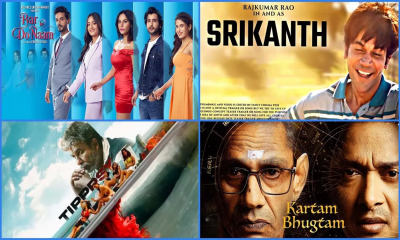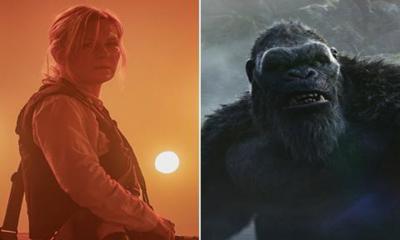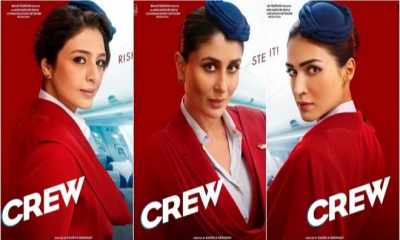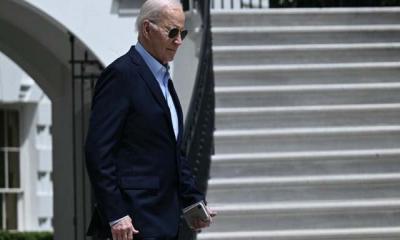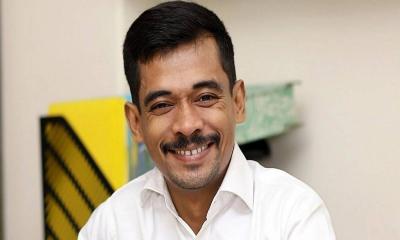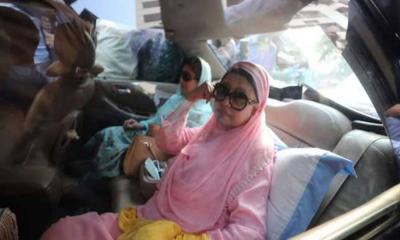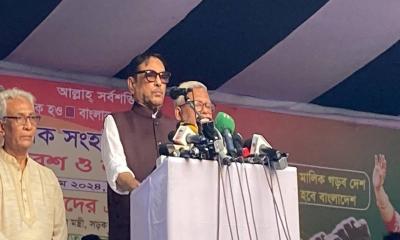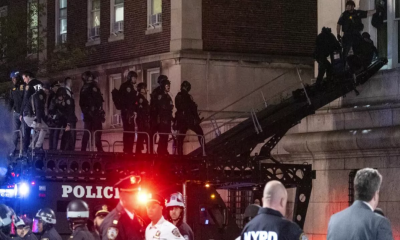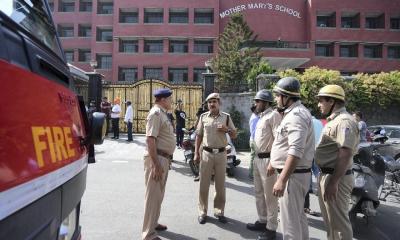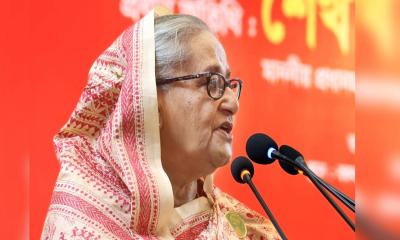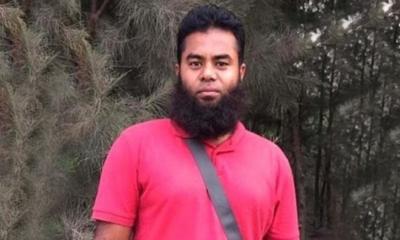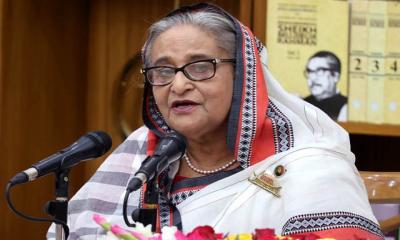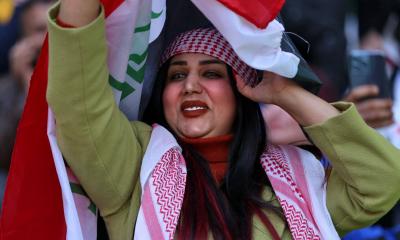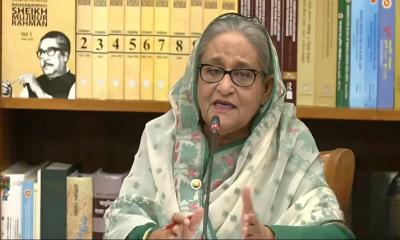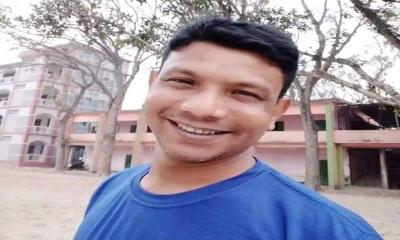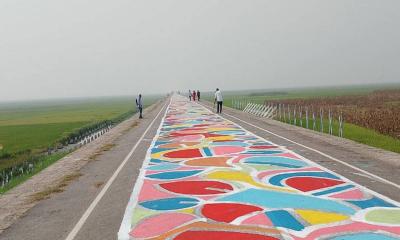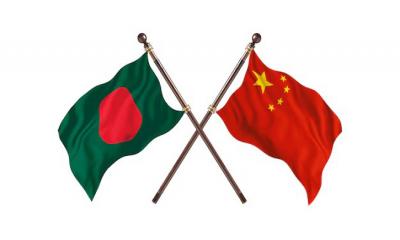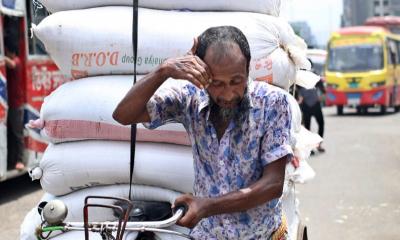Bangladeshi indie movie 'Rehana Maryam Noor' screened at the world’s premier film festival on Wednesday (July 7), setting a milestone for the country’s film industry. AFP spoke to writer-director Abdullah Mohammad Saad about the psychological drama and his experience as a trailblazer on the French Riviera.
It is one of the great wonders of Cannes that talented young filmmakers from across the globe can stand side by side with the biggest names in cinema, on a level playing field.
Of course, the world’s most prestigious film festival is in love with the movie stars that grace its famous red carpet. It is as much about glamour as the films. But its real purpose is to explore the world of cinema, to celebrate the medium and to showcase new talent.
Among this year’s intriguing batch of newcomers to the Riviera is 36-year-old screenwriter and director Abdullah Mohammad Saad, whose feature film 'Rehana Maryam Noor' screened in the Un Certain Regard sidebar on Wednesday, becoming the first film from Bangladesh to be part of the festival’s official line-up.
The film received a standing ovation from a housefull theatre
'Rehana' is Saad’s second feature after his 2016 ‘Live from Dhaka,’ which picked up a best director award at the Singapore International Film Festival and went on to appear in several European festivals. Like his debut film, it is a character-driven piece, powered by an extraordinarily intense performance from actor and model Azmeri Haque Badhon.
Badhon plays the title character Rehana, a stern, unbending assistant professor in a medical school who struggles to balance her work with the demands of single parenting and looking after an ailing mother and a hopeless brother. The precarious balance soon spins out of control when she stumbles upon one of her students in tears and decides to doggedly pursue the male professor who seemingly assaulted her.
The movie mines the familiar territory of resilient and obstinate women battling injustice in a profoundly sexist environment. But its morally complex protagonist is no easy champion for the feminist cause. Rehana is incorruptible and yet prepared to lie – and hurt those she holds dearest – in her obsessive quest for retribution.
That could be perilous terrain to venture into, but the film is careful to show how Rehana is pushed into a corner by a society that is all too often indifferent or complicit. Her predicament is emphasised by Saad’s bold stylistic choices, from the harsh lighting to the probing, handheld camera that follows her every step.
Lead actor Azmeri Haque Badhon and director Abdullah Mohammad Saad pictured at the Cannes photocall on Thursday | Photo: Mehdi Chebil, AFP
AFP spoke to the 36-year-old screenwriter and director about his movie and what his pioneering selection at the world’s premier film festival means to Bangladesh’s indie filmmakers.
How does it feel to be part of Cannes’ official selection? And how was the news greeted back home?
It’s a great inspiration and a huge honour to be here. To make a film requires a lot of sacrifice, devotion, time and energy, so when something like this happens it really inspires you to carry on.
People back home were overwhelmed. It was an achievement more for them than for me. This year is the 50th anniversary of Bangladesh’s independence, so it actually brought more joy to people and also confidence to keep on making films.
How difficult was it for an independent filmmaker like you to finance this movie?
Of course we have more challenges in Bangladesh if you compare with the more sophisticated film industries, but actually the financing was not such a struggle. I like to work with my friends, like I did in my previous film. And I was lucky to have my producer, Jeremy Chua, who also helped a lot with the writing.
My lead actor put her heart and soul into the movie; whatever we needed she gave to us. My cinematographer went to the gym for more than a year, because I told him he would have to be very fit to do this production, because of the long takes and the hand-held camera. These are just a few examples of how the team helped me make this film.
Your film is a fascinating character exploration; where did the quest originate?
I grew up with three older sisters. They’re very bold, beautiful, dynamic, intelligent people. They always dominated our family and they had a great influence on me. I have seen them closely, from being daughters to sisters and then mothers and professionals. I always found this very fascinating. The whole project started from this image I had of a stubborn woman. I wanted to see what she’s really made of and how much I could push and find out what kind of person she is.
Rehana is not an obvious champion for the MeToo movement. Was it important for you to create a complex, morally ambivalent character?
My film is an investigation of human nature. I didn’t write this from a political standpoint. Of course there is a very political aspect to this film. But I don’t see myself as a political filmmaker. I am very character-driven. What interests me is always this character and how complex she is. I didn’t try to portray her as a hero or champion of a movement, but more as a person and how she navigates this contemporary world.
Is there something specific about your country’s experience that you wanted to convey?
Of course I cannot write outside of my personal experience, so what I have portrayed I have in some way experienced or observed in my country. But I definitely wanted everyone to be able to relate to her, not just from my country’s point of view. When a friend said it could happen anywhere, in France or elsewhere in Europe, I thought maybe I had hit that nerve or hit that point where it feels like the story could be anywhere.
You’ve mentioned your lead actor’s dedication. How much was she involved in shaping the character?
When I first met her and discussed the character, I didn’t have the whole screenplay. We started rehearsing and we kept talking about her character. I observed her and her relationship with Emu . I tried to create an atmosphere where they could feel safe with each other and interact.
Azmeri Haque Badhon put her 'heart and soul' into Rehana's character | Photo: Mehdi Chebil, AFP
Definitely our discussions with Badhon had a great impact on my final draft. Of course that’s also because she is a single mother. She also has a nine-year-old daughter and I have seen how they interact. She rehearsed for nine months for this character and put everything else aside. Financially, we couldn’t compensate her enough! But she really felt she wanted to do this and she carried the whole film on her shoulders.
Do you hope the Cannes spotlight will generate more interest in Bangladeshi films?
I personally don’t want too much attention; I like to remain as invisible as possible. I don’t feel very comfortable in the limelight. But of course, this achievement will help our industry a lot. Most importantly it will really inspire our independent filmmakers. I received a lot of positive responses from people who now really believe that our films can be in Cannes, which was kind of a dream until now. I think that’s one of the greatest achievements of our film, to have that kind of legacy for my fellow filmmakers.
Source: AFP


